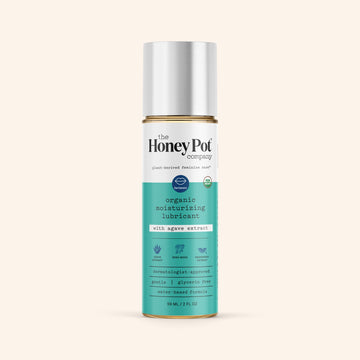Hysterectomy. You may have heard of it. You probably know someone who has had one. But what exactly is it? Why would you need it? And what is life like after it?
A hysterectomy is a surgical procedure that removes the uterus from the body. In some cases, the cervix is also removed at the time of a hysterectomy. This is called a total hysterectomy. Sometimes, the ovaries are also removed at the time surgery. This additional procedure is a called an oophorectomy.

Source: https://my.clevelandclinic.org/health/treatments/17800-oophorectomy
Some of the most common reasons someone may have a hysterectomy are heavy menstrual bleeding, pelvic pain, cancer, and pelvic organ prolapse. A large benefit of a hysterectomy is that it can definitively treat these types of problems after failing other treatment options. This surgery can lead to significant improvement of quality of life for patients who struggle with things like endometriosis pain, significant blood loss from fibroids, or uterine prolapse. However, there are some potential changes you may experience after your hysterectomy.
Menopause Symptoms
Though the uterus is responsible for shedding the blood of your monthly period, the ovaries are the hormone-making factory that produces estrogen, progesterone, and testosterone. These hormones play a critical role in the timing of our cycles, as well as vaginal health. During a hysterectomy where only the uterus is removed, the ovaries are still available to make hormones that are important for premenopausal people. It is possible to have premenstrual symptoms without an actual menstrual bleed. For example, you might still have monthly breast tenderness, bloating, or mood swings.
For those who have their ovaries removed at the time of a hysterectomy, this causes immediate menopause. The drop in estrogen levels that come when the ovaries are removed may lead to a variety of new symptoms, including hot flashes, night sweats, insomnia, and mood changes. When menopause occurs at the natural time, the drop in estrogen level tends to be more gradual, so symptoms may develop over time. However, with surgical menopause, these symptoms can be abrupt and intense. The good news is that there are options to manage these menopausal symptoms. Your doctor may talk to you about starting hormone replacement immediately after surgery to avoid these bothersome changes if you are a candidate.
Vaginal Dryness
Estrogen is also vital for the health of the vulva and vagina. The drop in estrogen levels after the ovaries are removed cause vaginal atrophy. This is when the vaginal tissue becomes thinner and more fragile. The qualities of the vagina change leading to loss of elasticity, shortening and narrowing of the vaginal canal, and reduction in vaginal secretion. Thinning of the vagina can cause higher susceptibility to cuts and tears from pressure or friction (such as sex or pelvic exams). In addition, the change in the top skin layer of the vagina leads to less lactobacilli (the good bacteria of the vagina). This ultimately means a high risk of recurrent vaginal infections.
Now this may sound scary, but the good news is that there are ways to prevent and treat this. Vaginal estrogen cream may be prescribed to help supplement the vagina with additional estrogen. The Honey Pot’s Lavendar Vulvar Cream is also gentle enough to soothe the sensitive skin of the vulva. Also, taking a probiotic, like the Honey Pot’s Vaginal Care Probiotic, can support vaginal health by increasing lactobacilli levels in the vagina.
Sex after hysterectomy
Sex can be different for some after hysterectomy but should still be enjoyable. If the ovaries were removed and you’re dealing with vagina dryness, The Honey Pot has you covered! The Honey Pot’s lubricants can reduce vaginal discomfort and tears during sex. Its hypoallergenic formula has no irritating additives and is sensitive enough for fragile vaginal tissue. If your cervix was removed during the hysterectomy, the length of the vagina may have been slightly shortened. However, this does not change the vagina’s capacity to stretch and contract during sex and orgasms. It is possible that removal of the ovaries can decrease libido due to the lower estrogen levels. However, many times removing the uterus solves pain and bleeding issues that may have been negatively impacting libido. In this case, libido can also improve after surgery. If sex is uncomfortable and unenjoyable, this is not normal. Talk to your OBGYN about pelvic floor physical therapy, hormone replacement, and possibly sex therapy.
The thought of undergoing a major surgery and removing a part of your body can be overwhelming. Though the decision to have surgery may be to improve your health, it can still take a toll on how you emotionally process the changes to come. Know that you are not alone. As you prepare for your surgery, seek support from others who may have gone through it. Consider working with a therapist and connecting with a support group. Talk with your doctor to gain tips to navigate through both the healing and the changes you may experience after surgery. Preparing your body and mind before surgery will help you have a smooth transition into life after hysterectomy.
For more information about hysterectomy or to find a culturally responsive healthcare provider, visit our partner Health in Her HUE. Health in Her HUE is a digital network of culturally sensitive healthcare providers, evidence-based health content, and community support.






